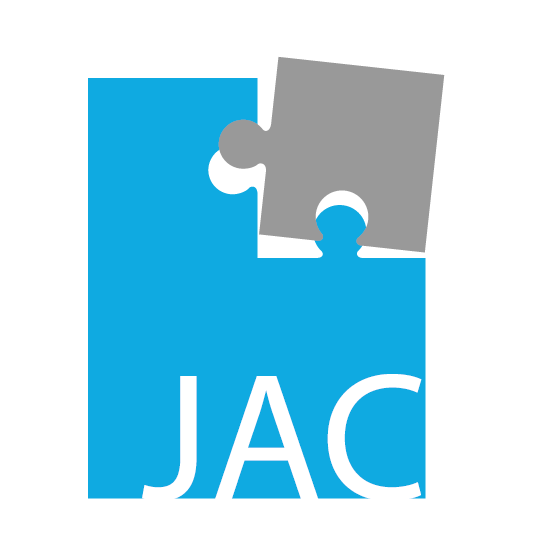What is skills-based hiring?
Skills-based hiring is a shift from “hire for attitude and train for skill” or a focus on degree attainment to an approach that focuses on “skills first” as a determinant for success.
It places a candidate's skills and competencies at the forefront of the recruitment process. Rather than prioritising a candidate's qualifications, experience, or educational background, it focuses on demonstrated skills and competencies that a candidate has acquired through their work experience or training.
This is a departure from the traditional recruitment approach, which often relied heavily on educational qualifications, such as four-year degrees and work experience. This approach can often disadvantage individuals who may have relevant skills but lack formal qualifications or experience.
By prioritising skills, companies can attract a more diverse pool of candidates who may have skills and experiences that are transferable across different industries. This approach also means that employers are able to identify candidates who may be a good fit for a role but who may not have the typical educational background or experience that is traditionally required. This makes skills-based recruitment a more inclusive and flexible approach to hiring.
A shift to this type of hiring is evidenced by 9% of companies hiring candidates without qualifications.
Examples where a skills-first approach has resulted in a hiring win
In Automation
As the industrial sector continues to advance in automation and retooling, new opportunities are being created that require additional training and competencies. Where these may not have been a traditional combination of skills and competencies, a skills-based approach has been instrumental in filling these roles, as seen in the following two examples:
Sales Manager from a different industry background – a major regional warehouse automation company was seeking a sales manager with a background in sensors and metrology. Despite a lack of experience in the field of logistics, the candidate had other skills required for the role, in pre-sales and technical solutions. The candidate was successfully hired and has played an instrumental role in the company's success in Southeast Asia.
Procurement Manager – a multinational construction materials firm requires a Global Procurement Manager with experience in managing suppliers and diversifying supply chain reliance in a target region. Although the candidate came from a chemical and industrial machinery background, their transferable skillset was well-suited to the role. The candidate was successfully hired and has since played a major role in revamping the company's procurement strategy globally.
In Tech
Over the past six months, numerous super-app and PaaS companies have implemented waves of layoffs. However, we have observed that engineers who possess the ability to quickly acquire new technical skills, are multilingual, and have the flexibility to pivot beyond their comfort zones are well sought-after. Clients have expressed a strong interest in hiring candidates who can think critically and efficiently when presented with scenario-based IT questions.
Some examples of successful skills-based hiring cases are:
DevOps Engineer with a non-technical degree – a fintech firm was searching for a tech position, and DevOps Engineer with a non-technical degree demonstrated the ability to resolve complex software and coding questions during their interview process. The candidate was successfully hired, leading to relocation to Singapore.
SRE Engineer with diploma certification – an SRE Engineer with over 12 years of hands-on experience in a cloud-native environment and a diploma certification was offered a position within one of the largest European tech firms.
In Aviation
The aviation industry has made a significant comeback since 2022, benefiting from the world's reopening since the recovery from the COVID-19 pandemic. A consistent increase in flight sorties across the globe, as well as a rise in new aircraft orders amid the return of heavy flying has resulted in a surge in hiring requirements in the manufacturing and engineering sectors, with employees eagerly seeking to fill open positions enabling various players in the industry to resume their expansion plans.
While the COVID-19 crisis demonstrated the potential risks of an industry-wide catastrophe, it also encouraged aerospace engineers to acquire new skills and become even more valuable assets to their employers. We have witnessed a significant uptick in the number of engineers acquiring new skills to remain competitive in the industry. We have witnessed many candidates who have added skills such as data analytics, robotic automation, and digitalisation to their portfolio of skills.
We have additionally noticed that 30% of Aerospace Engineers have transitioned back and forth from other industries, such as Semiconductor and Automotive, both of which saw significant growth in 2021. For example:
Software Engineer –a Production Leader from one of the top 500 Fortune companies in the aerospace industry; a bachelor’s degree-holder in Aeronautical Science who further attained a master’s degree in software engineering, and transitioned from the Aerospace industry going on to work as a software engineer in IT.
Operations Manager –an Operations Leader from one of the top-tier aircraft engine makers, through cross industry training with WSG found a new role as Operations Manager with one of the top four semiconductor equipment manufacturers.
Will skills-based hiring ease the perceived lack of a candidate pool?
The status quo in how employees have come to view and assess candidate profiles is due for a shift. In such a competitive labour market environment as Singapore, yet where the number of jobseekers only continues to increase, could skills-based hiring be the answer? Jobseekers today also show a desire to upskill and increase their range of knowledge to grow their careers. And with the ubiquity of online learning and government initiatives to support this, opportunities abound for them to do it.
The Singapore government has implemented several initiatives aimed at upskilling and reskilling talent. For example, Workforce Singapore offers to "sponsor" up to 70% of an individual's salary up to $6,000 for a period of nine months if a company hires talent from a different industry, with a plan in place to train them.
A skills-first approach is a fresh one that can open up a diversified talent pool for those hiring in certain areas like Automation, Technology, and Aviation. It requires the ability and flexibility to look past the most obvious applications of a candidate’s skill sets and the eye to recognise which one of those may be transferrable and successful in another setting, opening up new opportunities for both candidate and client alike.
To learn more about how a skills-based approach could help you discover a wider pool of talent, get in touch with a JAC Recruitment consultant today.


